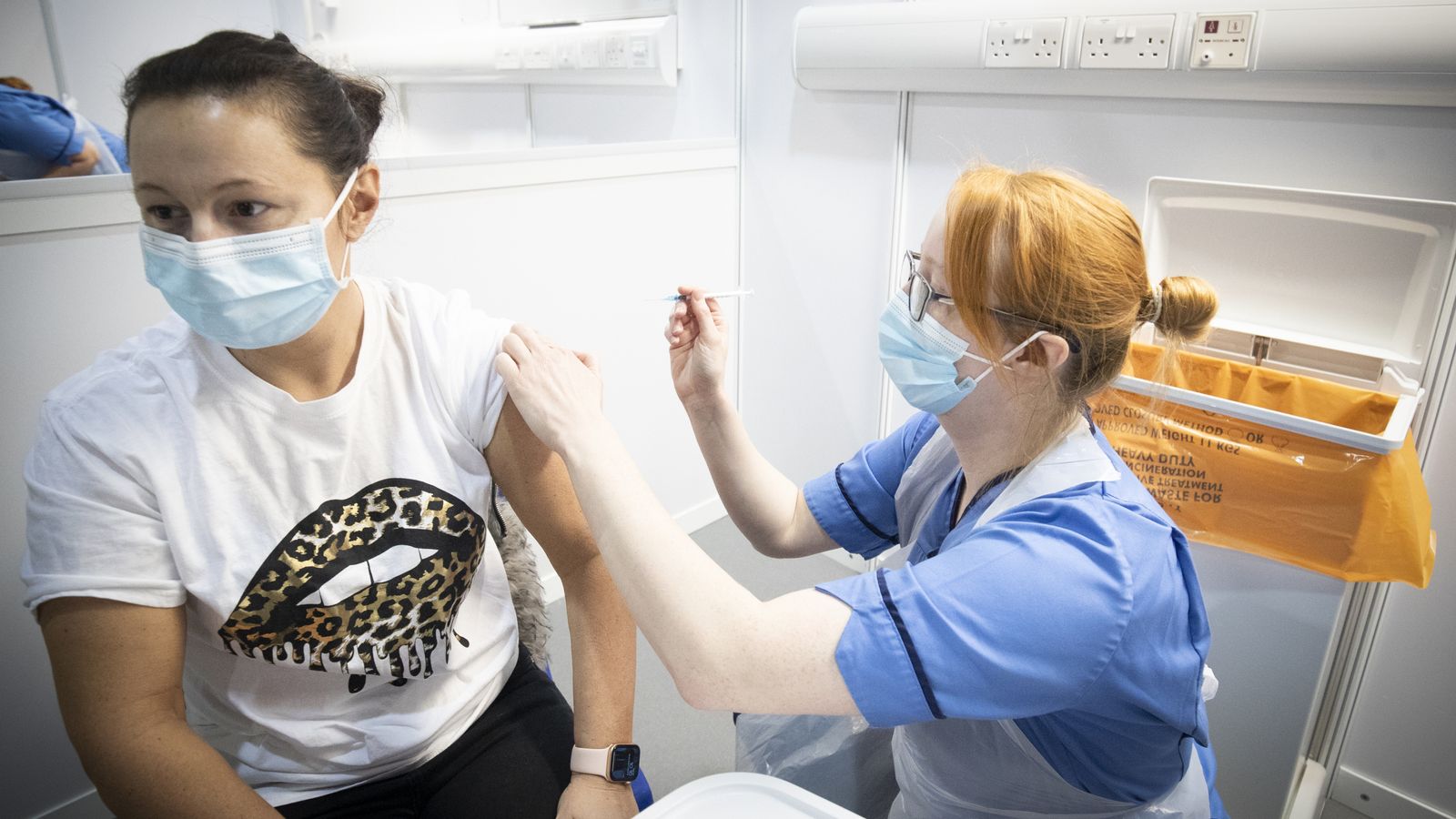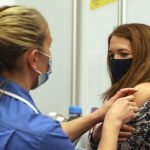Changes to women’s periods after the coronavirus vaccine are likely to be “coincidental”, gynaecologists have said.
It comes after data suggested more than 4,000 women reported changes in their menstrual cycle after getting a COVID jab.
But experts from the Royal College of Obstetricians and Gynaecologists (RCOG) say that most women experience changes in their cycles – so the fact this is happening after the vaccine could be “by chance”.
Live COVID updates from the UK and around the world
Dr Pat O’Brien, vice president for membership at RCOG, said: “Many women will experience a temporary change in their periods from time to time during their lives.
“And right now, many women in their 20s and 30s are having the COVID vaccine.
“So it seems inevitable that in some women these two events will coincide by chance.”
The Sunday Times reported that as of 17 May, 2,734 women had written to the Medicines and Healthcare products Regulatory Agency (MHRA) about menstrual side effects from the Oxford-AstraZeneca vaccine, 1,158 from the Pfizer one, and 66 as a result of the Moderna jab.
Most of them reported experiencing heavier bleeding than usual.
Dr Sue Ward, vice president for education at RCOG, said she would “support more data collection in this area to understand why this might be the case”.
Follow the Daily podcast on Apple Podcasts, Google Podcasts, Spotify, Spreaker
Her colleague Dr O’Brien stressed that any anecdotal changes in women’s periods were unrelated to concerns about the vaccine and fertility.
“There is no evidence to suggest that COVID-19 vaccines will affect fertility,” he said.
More than 31 million people in the UK are now fully vaccinated against coronavirus, while 43 million have had their first dose.
Last week the vaccine rollout was opened up to everyone over the age of 18.
Common side effects include pain at the injection site, fever-like symptoms and fatigue.






















